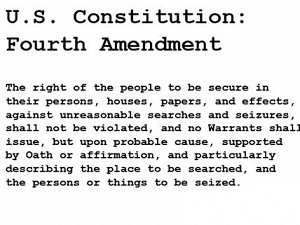#SimoneManuel ‘s Olympic gold medal in swimming History of slave african divers“our men had very great toil in the capture of Africans who were swimming,
for they dived like cormorants”History of slave African diver’s swimming mimics the cormorants bird fishing,for a living-pearl diving as slaves.
When European invaders came to North and South America in the 1600s, most of them didn’t know how to swim, because people had stopped swimming in Europe by that time. Some boys did swim a little, especially poor boys who had more freedom, but they didn’t know the crawl stroke and could only dog-paddle. Girls probably didn’t get much chance to swim.
To do jobs that required swimming, these Europeans first forced Native Americans to swim for them, and then forced West African people to come to North and South America as slaves to swim. Some of these West African people worked as pearl divers off the coast of Venezuela.
A Massachusetts law of 1773 said that people couldn’t go swimming on Sundays (because they should go to church instead), so at least some people knew how to swim. About the same time, Benjamin Franklin knew how to swim.
http://quatr.us/games/americanswimming.htm


March 2006 !e Journal of American History 1327
Enslaved Swimmers and Divers in the
Atlantic World
Kevin Dawson
Long before a single coastal or interior West African was enslaved and cargoed off to toil the length of his days under the skies of the New World, many had become adept swimmers and underwater divers. West Africans often grew up along riverbanks, near lakes, or close to the ocean. In those waterways, many became proficient swimmers, incorporating this skill into their work and recreation. When carried to the Americas, slaves brought this ability with them, where it helped shape generations of bondpeople’s occupational and leisure activities. From the age of discovery up through the nineteenth century, the swimming and underwater
diving abilities of people of African descent often surpassed those of Europeans and
their descendants. Indeed, most whites, including sailors, probably could not swim. To reduce drowning deaths, some philanthropists advocated that sailors and others learn to swim. In 1838 the Sailor’s Magazine, a New York City missionary magazine, published the inscription on a city placard titled “Swimming.” It read: “For want of knowledge of this noble art thousands are annually sacrificed, and every fresh victim calls more strongly upon the best feelings of those who have the power to draw the attention of such persons as may be likely to require this art, to the simple fact, that there is no difficulty in floating or swimming.” Similarly, !eodorus Bailey Myers Mason’s 1879 pamphlet, !e Preservation of Life at Sea, claimed, “!e great majority of people cannot swim, and strange as it may seem to you, there are many who follow the sea as a profession who cannot swim a stroke.” Mason then proclaimed that, as part of their instruction, all United States Naval Academy cadets should be taught to swim.
March 2006 !e Journal of American History 1327
Enslaved Swimmers and Divers in the
Long before the Portuguese ventured down the West African coast, many Africans
had become skilled swimmers, divers and surfers. In one of their first
recorded encounters, the Portuguese were amazed by the swimming and underwater
diving abilities of the Africans. The Portuguese navigator João Gonçalves
Zarco noted that his men had considerable difficulty capturing
Senegambian canoemen after they leaped into the water to avoid capture, saying
“our men had very great toil in the capture of those who were swimming,
for they dived like cormorants, so that they could not get hold of them.”2
Slaves’ expertise in underwater diving, moreover, was one of the first African
skills that New World slaveholders exploited, in the process generating considerable
profit. At the turn of the seventeenth century Pieter de Marees explained
that Venezuelan slaveholders sought Gold Coast Africans to employ as pearl
divers, noting:
[t]hey are very fast swimmers and can keep themselves underwater
for a long time. They can dive amazingly far, no
less deep, and can see underwater. Because they are so good
at swimming and diving, they are specially kept for that purpose
in many Countries and employed in this capacity where
there is a need for them, such as the Island of St. Margaret in
the West Indies, where Pearls are found and brought up from
the bottom by Divers.3
http://faculty.ucmerced.edu/sites/default/files/kdawson4/files/swimming_surfing_in_africa.pdf






































































